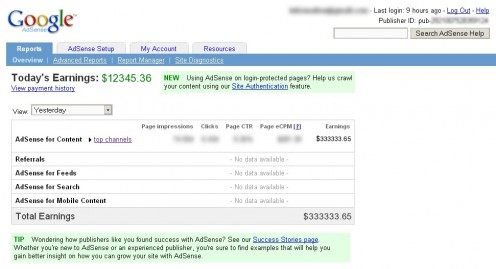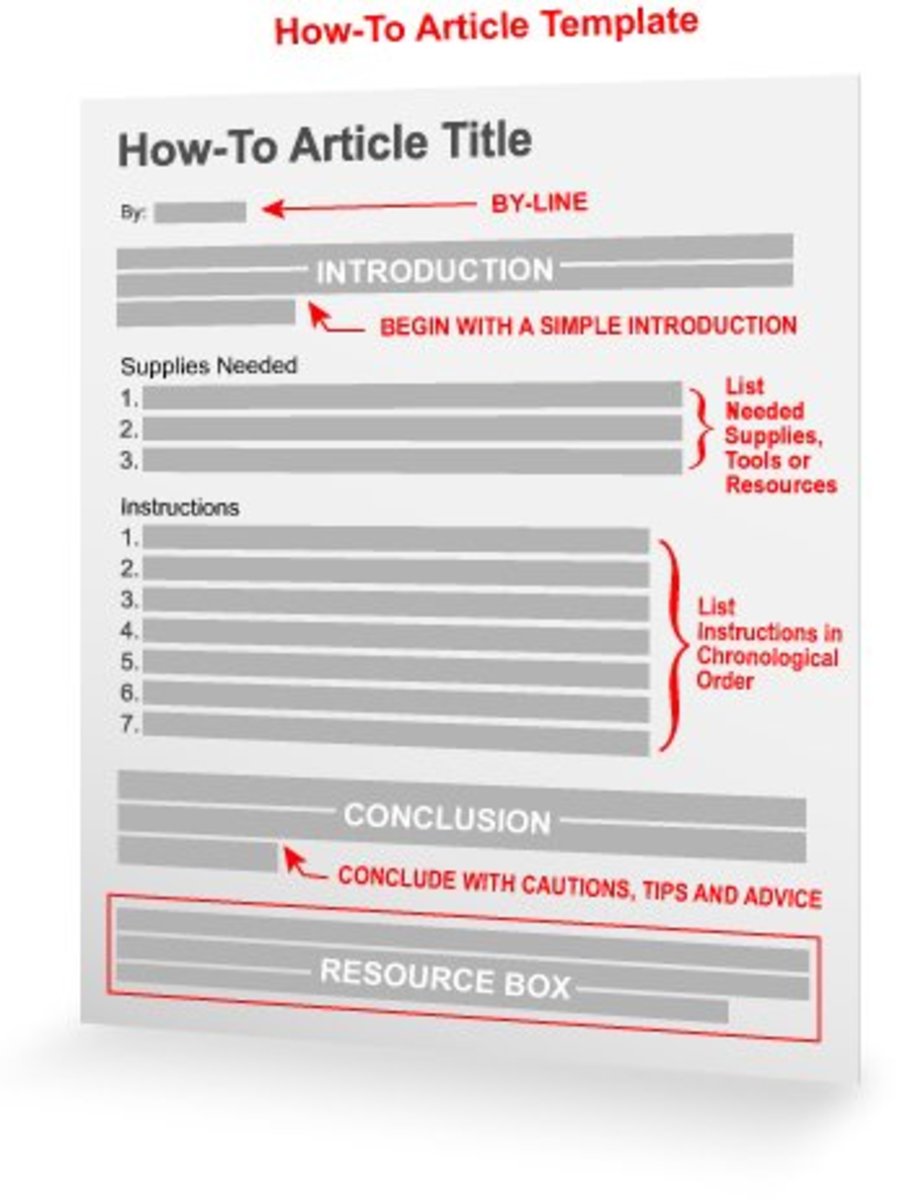Google AdSense Click-Through Rates Performance Confidentiality Requirements
Google AdSense Money Making Screenshot Proof
If you've poked around the Internet a bit for information about Google AdSense and how much money you can make online with AdSense, you've probably seen someone offer to prove how much they make with AdSense by showing a screenshot of the AdSense Earnings Report. That screenshot, however, almost always has certain columns of information suspiciously blurred out.
Setting aside the fact that AdSense Earnings Reports screenshots are very easily faked, it may seem odd that certain information has to be redacted, while other, seemingly more sensitive information may be displayed publicly. Why the secrecy on some things, but not on all things.
The answer, or at least the one most often given, is that they are required to hide certain information about how much money they make with AdSense by Google's Terms of Service.
Fake Google AdSense Earnings

AdSense Terms and Conditions Confidentiality Clause
Do the Terms and Conditions of the Google AdSense program actually prohibit these "big AdSense earning publishers" from disclosing the details of how they make huge money with AdSense with no effort, no time, all while having their feet rubbed by professional swimsuit models, just like you could if only you would sent $89.99 for their amazing, super-secret, blockbuster e-book titled, "Super Amazing Guide to Unbelievable Wealth and Fortune In Just Seconds a Day Using Google AdSense! "
The answer is, sort-of.
The AdSense Terms and Conditions does have a Confidentiality clause. In the current TOS, it is number 7 and states:
You agree not to disclose...click-through rates or other statistics relating to Property performance in the Program provided to You by Google...However, You may accurately disclose the amount of Google's gross payments to You...
Technically, depending upon how you want to interpret these terms, and more specifically, if you want to push it with Google and risk being banned from AdSense, there are several gray areas.
First, many of the screenshots people do show could be considered to violate these terms even with the CTR column blacked out. Gross payments means how much Google paid you in total, so the screenshots showing it broken out by time-period, AdSense channel, etc. could be forbidden, if anyone ever decided to get grumpy about it.
Secondly, if you calculate and compute your numbers and statistics yourself without using any of the information reported to you by Google, you can say whatever your want. Of course, you'll need to document this pretty well to prove that you didn't use Google's numbers which means at minimum you'll need some sort of third-party analytics, or server side reports or logging installed to create the raw data. And, there is that always pesky problem of being banned from Google AdSense and having your account disabled.
Technically, they couldn't ban you for not violating the terms and conditions, but considering a ban comes via email and electronic shutdown and there is no venue for either appeal or requesting an official detailed explanation, it wouldn't be hard to claim it was for something else and then stop answering your emails.
Proof How Much Money Made With AdSense
Obviously, the best move for legitimate money making AdSense publishers is to err on the side of caution and black out the conventionally accepted "secret" data including click-through rates (CTR) and anything else that seems borderline.
Of course, for purposes of proving how much money I make with AdSense, displaying a screenshot is not worth the pixels it is displayed on. Numerous tutorials will show anyone who asks how to fake AdSense earnings, complete with the proper Photoshop brushes if you want to be really fancy about it.
If you'd rather go the easy route, several websites can generate phony earnings for AdSense with the click of a few mouse buttons. Just Google fake AdSense earnings or fake AdSense screenshots to see dozens of examples.
Why Click-Through Rates CTR Must Be Kept Secret
The biggest question isn't whether or not a screenshot is real (it probably isn't), it is why CTR information must be kept secret in the first place.
That answer isn't necessarily very pretty, depending upon how far you want to take your suspicions.
First, there is the legitimate concern about intellectual property and not giving away data to competitors. Of course, any competitor worth its salt could easily create a bunch of websites, put AdSense on them and look at all the reports they want.
The less noble reasons, may or may not be true. Again, depending upon how critical you want view Google and the program any of the following MIGHT be something that could happen hypothetically.
- If no one knows the CTR then they can pay out whatever they want to. Good or preferred publishers could get more than others. It's not like anyone can check to see if they are getting the right amount.
- Profits come from the difference between what is charged to the advertiser placing the ad and what is paid to the publisher who put the ad on their site. Either side of this equation could become very angry if they knew the real spread. Both advertiser and publisher would be enraged to find out that the $5 was paid for the ad and $0.10 was paid for publishing the ad. (This is an exaggeration. It wouldn't take long at this rate for people to figure out and document it, but smaller spreads would be tricky.)
- Wall Street loves quarterly earnings reports. If a low performing quarter was coming in a quick adjustment in pay outs for the last 3 weeks of the quarter could turn a disappointing earnings conference call into blow-out performance for the quarter.
Writing and Making Money Online
- Citibank ThankYou Rewards Network 2010
So, after Citibank decided to screw over its customers by raising interest rates on credit card accounts of good customers (yours truly has a 776 cred - Best WordPress Advice For Writers Make Money Writing Online
WordPress is the best platform for writers to use to make money writing online. But, you have to do it right to make a high paying passive income mach - Make Money Writing for Demand Studios - Freelance Writing - ArcticLlama








